VISION FOR PUBLISHING
THE ROLE OF PUBLISHING IN THE UK'S SUCCESS

Introduction
from Dan Conway, CEO of the Publishers Association


The UK’s publishing industry is truly world leading. Publishing contributes an extraordinary £11 billion overall to the economy and the industry exports more books than any other country globally, which is a phenomenal cultural achievement for the UK.
UK publishers have also shown global leadership on research impact. We have been leading the pack on open access publishing, helping to fuel academic discoveries and drive innovation at home and abroad. Education resources are exported across the world and publishers’ support for reading enriches children’s lives.
Now, research by Public First shows that publishing has the potential to contribute even more to the UK’s future success. With backing from government, publishing can contribute an additional £5.6 billion to the UK economy by 2033 and support an additional 43,000 jobs. International demand for UK publishing is set to growth by a further 20% in the next decade and academic journals alone have the potential to grow by 66%.
Publishers drive growth, leading the world in publishing exports and acting as the heartbeat of the creative industries through the incredible stories they bring to screen, stage and games. Publishers innovate, seizing the opportunities offered by artificial intelligence (AI), amplifying crucial discoveries in UK research and development, and driving sustainability. And publishers inspire, finding exciting and diverse new voices, creating the next generation of readers, learners and leaders, and unlocking opportunities across the UK.
This is an industry of which the UK should be immensely proud. But we should not take it for granted. With an election on the horizon, we call on politicians to back policies to uphold and strengthen publishing’s social, personal, economic and innovative value to the UK.
Let’s work together to write the next chapter in our nation’s success story.
Publishing's Economic Impact


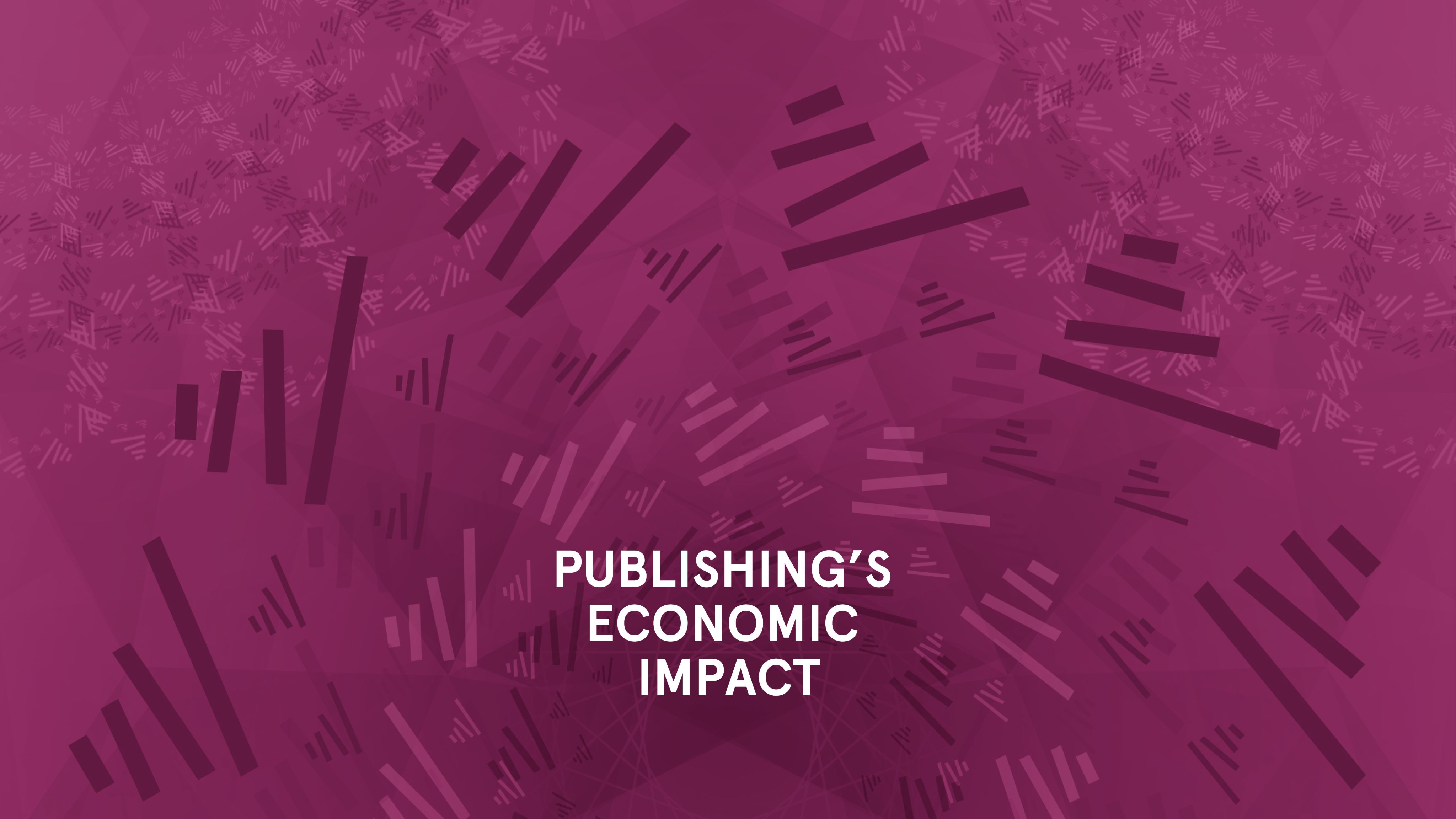
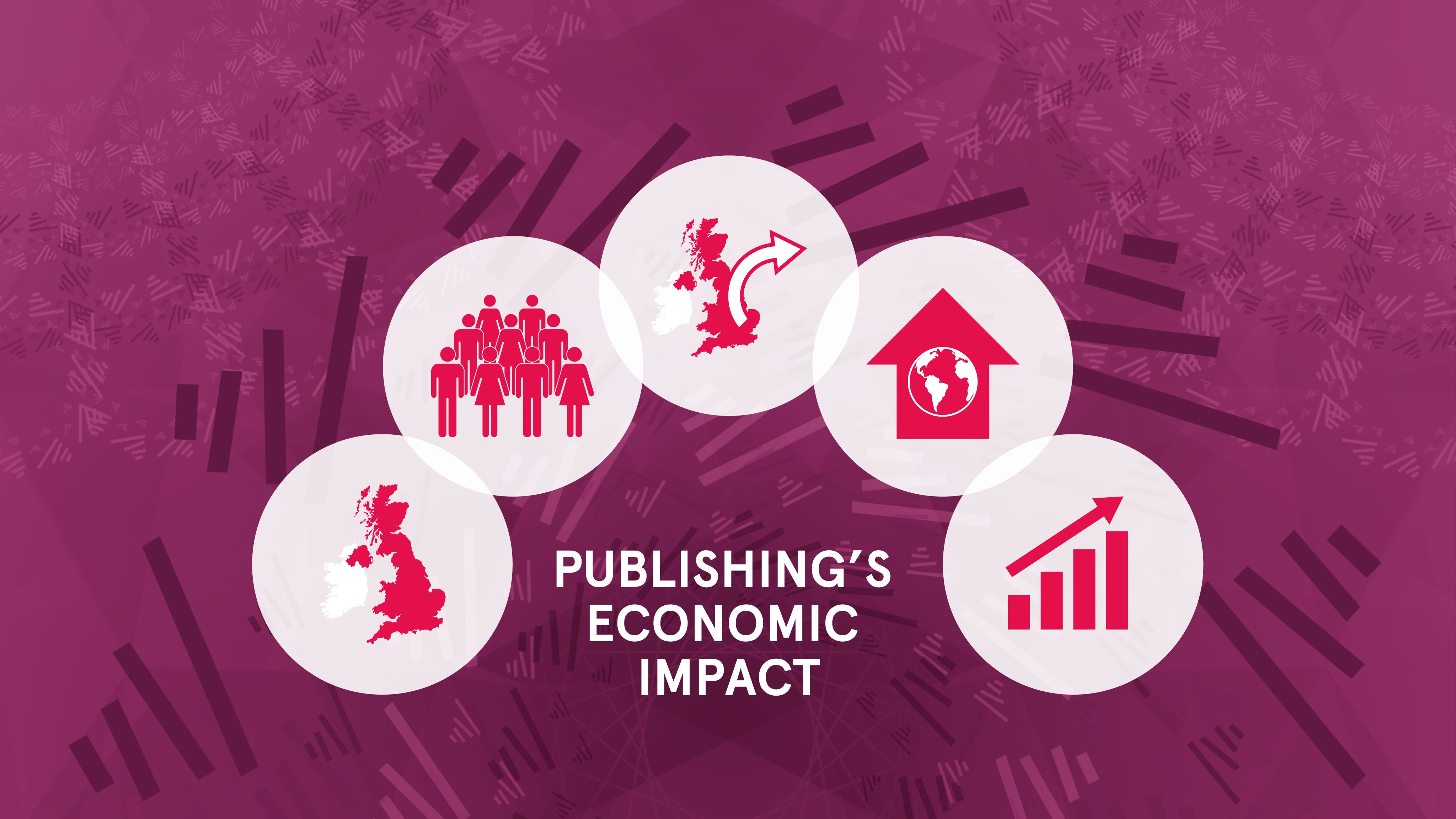
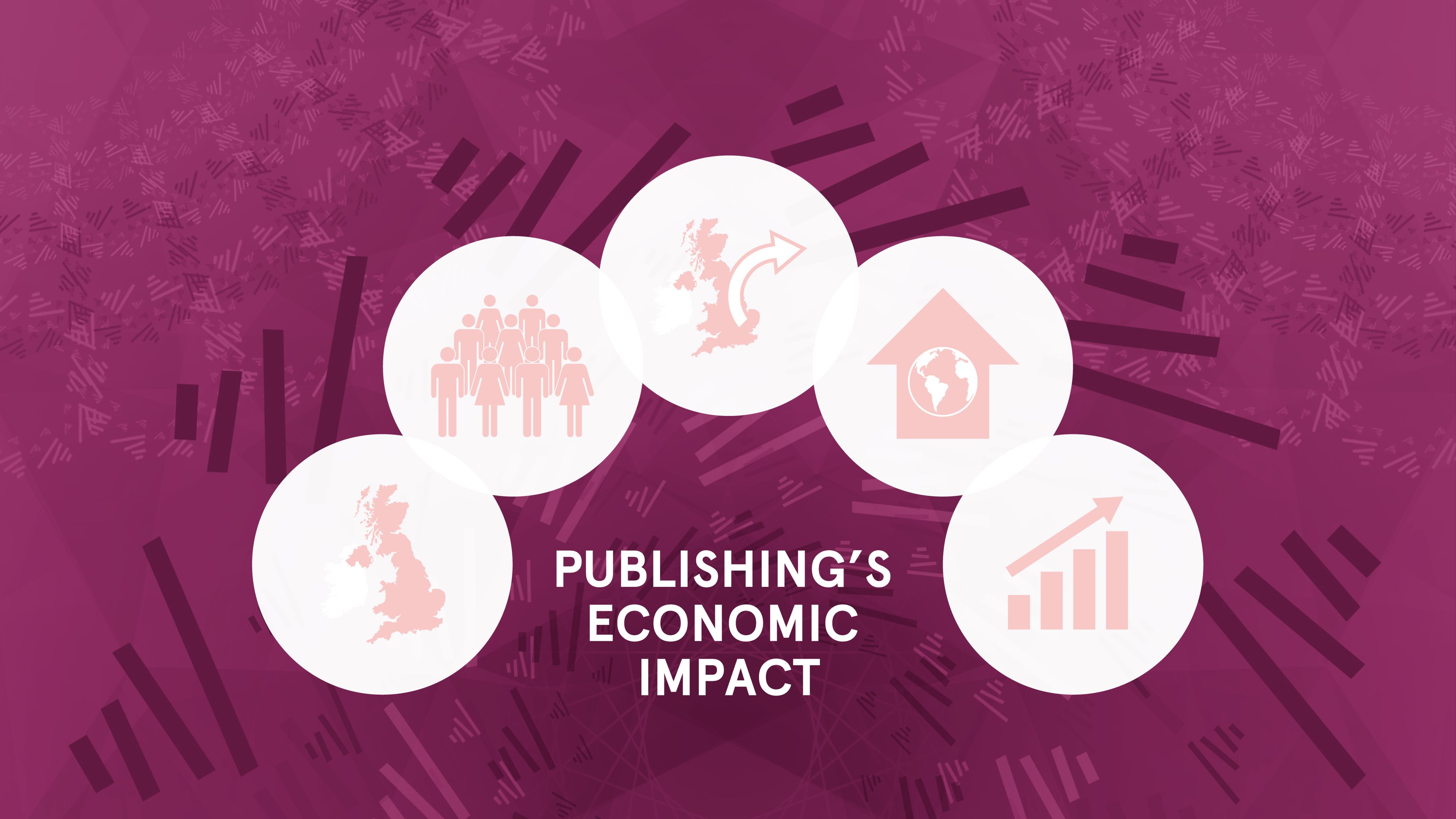
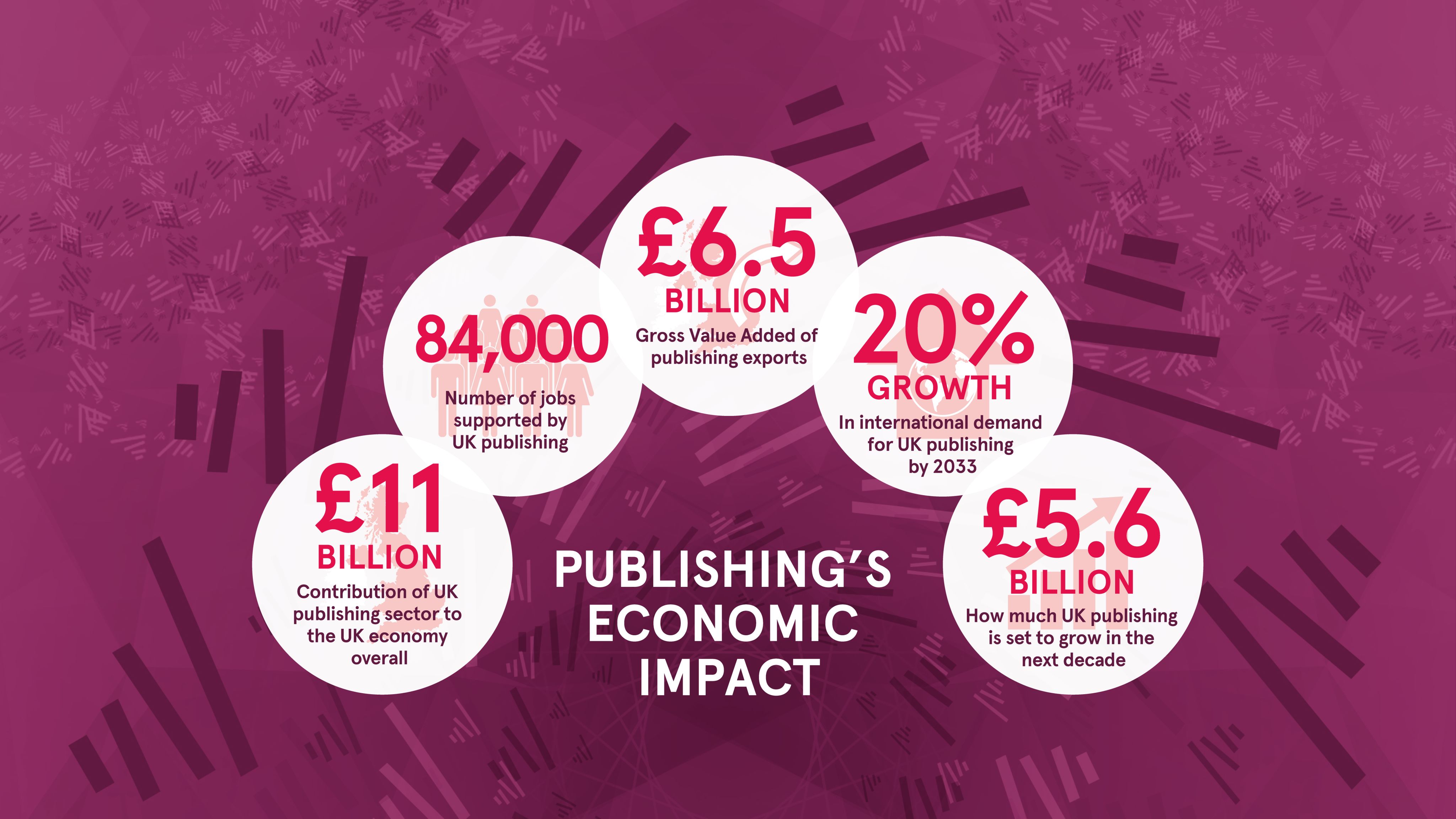
The Next Chapter
How publishing can help write the next chapter of the UK’s success



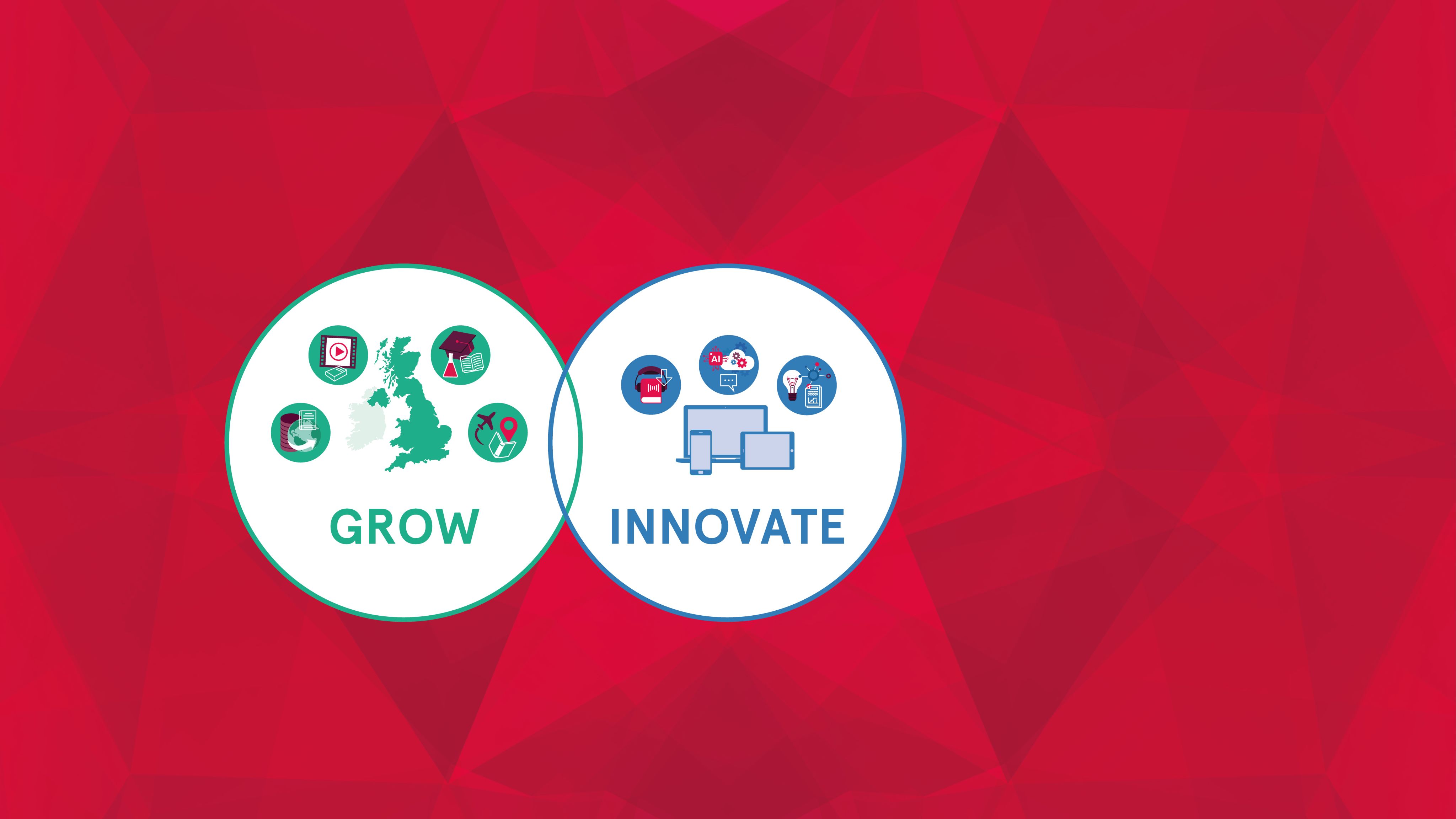
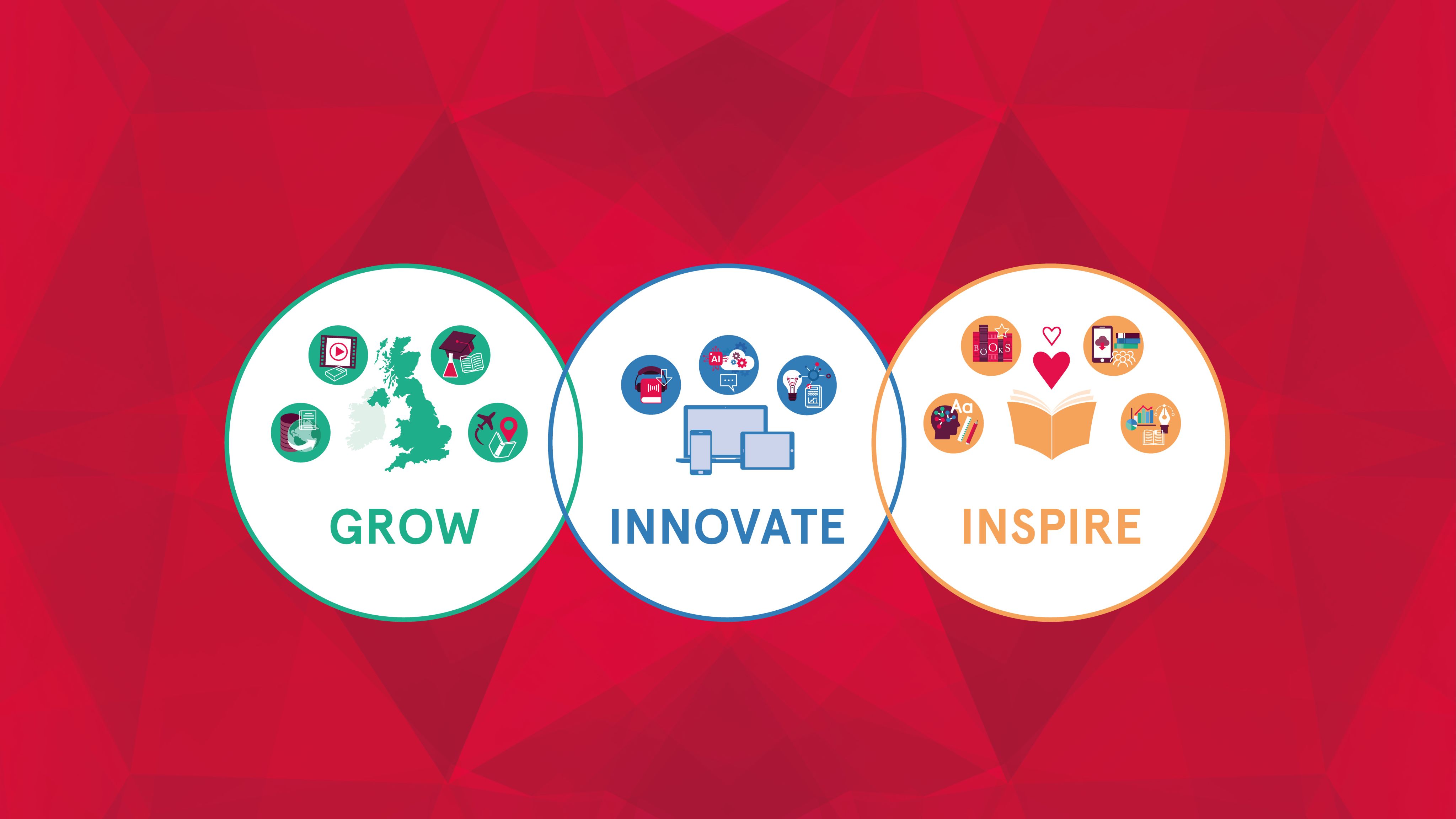
With an election on the horizon, we urge politicians to back policies that will ensure publishing helps to write the next chapter of our nation’s success.
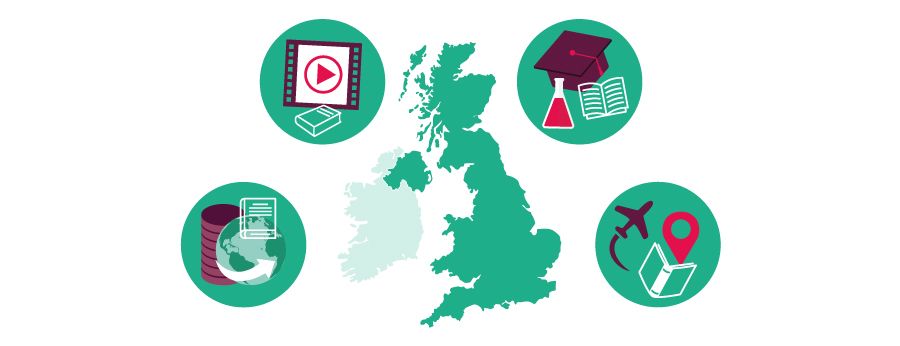
Grow
Vigorously uphold the UK’s globally advantageous intellectual property and copyright framework
“Like many writers, I've always been grateful for the UK's strong copyright rules which help to allow my books to reach readers around the world. Copyright is the bedrock of authors' earnings and ensures that everyone – whatever their background, their genre of writing – is properly remunerated for their talent. It is also a vital consideration when it comes to the rapid development of AI tools. Publishers are embracing the use of AI, but AI growth cannot come at the expense of intellectual property and human creativity.”
Kate Mosse, best-selling author of Labyrinth
Establish a Publishing Export Accelerator
CASE STUDY
Power Maths from Pearson is the UK’s leading Primary Maths scheme, recommended by the Department for Education and popular internationally. It has been built using world-class research from around the world, a unique mastery teaching model and was created by leading educational experts from the UK and China. A study with schools conducted by Pearson and UCL showed the impact of the resources on teaching, pedagogical knowledge, teacher workload and pupil engagement and provided the evidence base for an improved and updated edition.
Axe the final tax on reading – VAT on audiobooks and Article Publishing Charges
“Consuming books in any format brings knowledge and pleasure to millions of people. Audiobooks enable those who are sight impaired, have dyslexia or find reading challenging, to access the wonderful world of books and stories. I passionately believe that all books should be free from VAT.”
Lynda La Plante CBE, author of the best-selling Prime Suspect series
Boost creativity across the UK, with more funding for creative clusters
CASE STUDY
The Gruffalo is the bestselling and well-loved picture book written by Julia Donaldson and illustrated by Axel Scheffler. The Gruffalo was first published by Macmillan Children's Books in March 1999 and the sequel, The Gruffalo’s Child, followed in 2004. The original picture book stories have now sold 18.2 million copies worldwide and are translated into 107 languages and dialects. Across the publishing brand, sales have now reached global sales of 38 million copies. The Gruffalo Live! Theatre adaptation is produced by Tall Stories and began touring in 2001, with The Gruffalo’s Child opening in 2006. The Oscar-nominated animated adaptation The Gruffalo (2009), and BAFTA-nominated The Gruffalo's Child (2011) are produced by Magic Light Pictures.

Innovate
Capitalise on AI opportunities for the whole economy by upholding IP law, acting against copyright infringement and supporting transparency and licensing
CASE STUDY
Elsevier’s Scopus AI is an intuitive and intelligent search tool powered by generative AI to help researchers and research institutions get fast and accurate summaries and research insights that support collaboration and societal impact. Developed and tested with the research community, Scopus AI combines the world’s largest database of curated scientific literature with responsible AI. Scopus AI is based on Scopus’ trusted content from over 27,000 academic journals, from more than 7,000 publishers worldwide, with over 1.8 billion citations.
Ensure the UK is the home to world-leading research and innovation
CASE STUDY
In 1985, a paper by Joe Farman, Brian Gardiner, Jonathan Shanklin et al. at the British Antarctic Survey was published by the journal Nature, reporting large losses of total ozone in the Antarctic. Further research published in Nature by Susan Solomon et al clarified the negative impact of chlorofluorocarbons (CFCs) – solvents and refrigerants – on the ozone layer. After scientists raised the alarm, governments signed the Montreal Protocol in 1987 – the only UN treaty to be signed by every country on earth – committing to faster phasing out of these ozone depleting chemicals. In early 2023, after years of scientific monitoring, a UN report found that the ozone layer is set to be completely healed by 2026.
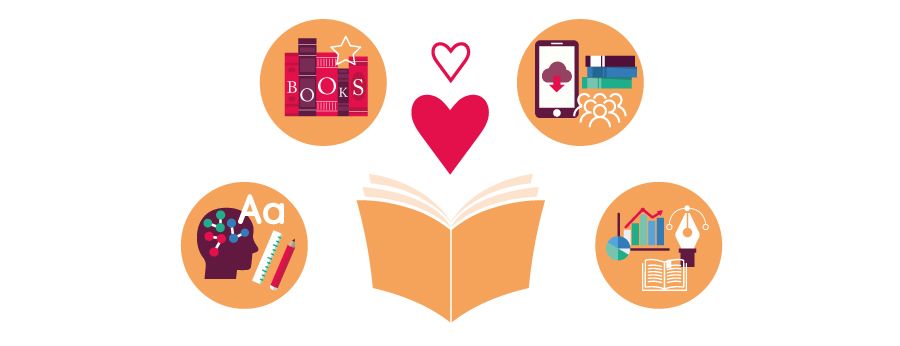
Inspire
Invest in libraries and literacy
CASE STUDY
If children read for pleasure, it boosts their academic achievement, empathy, and wellbeing. Yet 1 in 7 primary schools in England do not have a library, rising to 1 in 4 in our most disadvantaged areas. The Libraries for Primaries project aims to bring together the education, literacy, and publishing sectors to ensure every school has a library.
World Book Day’s mission as a charity is to encourage reading for pleasure. It aims to change lives through reading because reading for pleasure is a vital indicator of a child’s future success – but it is at its lowest rate since 2005. The annual campaign in March – with its joy, celebration and fun – encourages positive engagement with reading. 96% of children have heard of World Book Day and many say they’re more likely to enjoy reading as a result of World Book Day.
Restore a diverse, open and fair market for education resources by changing the scope of Oak National Academy
CASE STUDY
Education publishers such as Cambridge University Press & Assessment go beyond the textbook and worksheet, forming partnerships to enrich learning. The renowned Cambridge School Shakespeare Series offers an active approach to performing Shakespeare in the classroom, enabling students to inhabit Shakespeare's imaginative world in accessible and creative ways. Students were encouraged to perform in the Cambridge-sponsored What You Will competition run by Coram Shakespeare School Foundation in 2023, marking the 400th anniversary of Shakespeare's First Folio. Each student created a new speech for one of Shakespeare's characters, taking a fresh look at beloved plays and making the stories their own.
Unlock the creative skills of the future and ensure the publishing industry is open to all
“Our thriving and growing creative sector is an important asset to the UK, and people are at its heart. Creative education and skills pathways are key to the industry’s ongoing success. Government’s work with publishers can ensure creative subjects are celebrated, creative careers are open to all, and the industry has the future workforce it needs.”
Stephen Page, Executive Chair, Faber & Faber
Methodology
The public policy consultancy Public First conducted economic analysis on behalf of the Publishers Association in January and February 2024.
Core analysis: direct impact of the publishing sector
Public First firstly investigated the direct value to the UK economy of the publishing industry. To do this they sourced revenue data from the Publishers Association’s industry insights dashboard which shows UK publisher revenue in any given year. To convert from turnover to Gross Value Added (GVA), ratios from national accounts obtained through the Annual Business Survey were used. GVA can be measured by taking total output from an industry and subtracting the value of intermediate consumption, or inputs, and is used to estimate the contribution made to the overall economy. Alternatively, it can be measured by adding returns to capital and returns to labour.
The sector of relevance under the Standard Industrial code is ‘58.1: publishing of Books, periodicals, and other publishing activity’. The GVA of the publishing sector in total is estimated, and disaggregated for: export and imports; and, academic, consumer and education. Estimates were also used for journals and audiobooks. To estimate, employment data from the Business Register and Employment Survey was used which provides estimates of both employees and the self-employed.
Estimates for the SIC codes ‘58110: Book publishing’ and ‘58141: Publishing of learned journals’ were combined. The trends seen between 2017 and 2022 were used to estimate for 2023 and to forecast up to 2033.
Core analysis: indirect ‘upstream’ impact
Next the indirect impact on the economy that publishing activity has through upstream supply chains was investigated. This is based on the costs, or inputs, of the publishing sector such as printing or payments to the authors themselves which in turn act as revenue to those industries which they use to add more value to the economy. The GVA associated with this second order revenue, called ‘Type 1’ effects was calculated using input output tables published by the ONS. Further estimates were made for the induced impact of the additional spending power that is created. To estimate these effects ‘Type 2’ multipliers which include indirect and induced effects were used. These multipliers were applied to GVA and employment estimates to a wider estimate of the value of publishing to the UK economy.
As with direct impacts, past trends were explored to estimate for 2023 and to forecast to 2033.